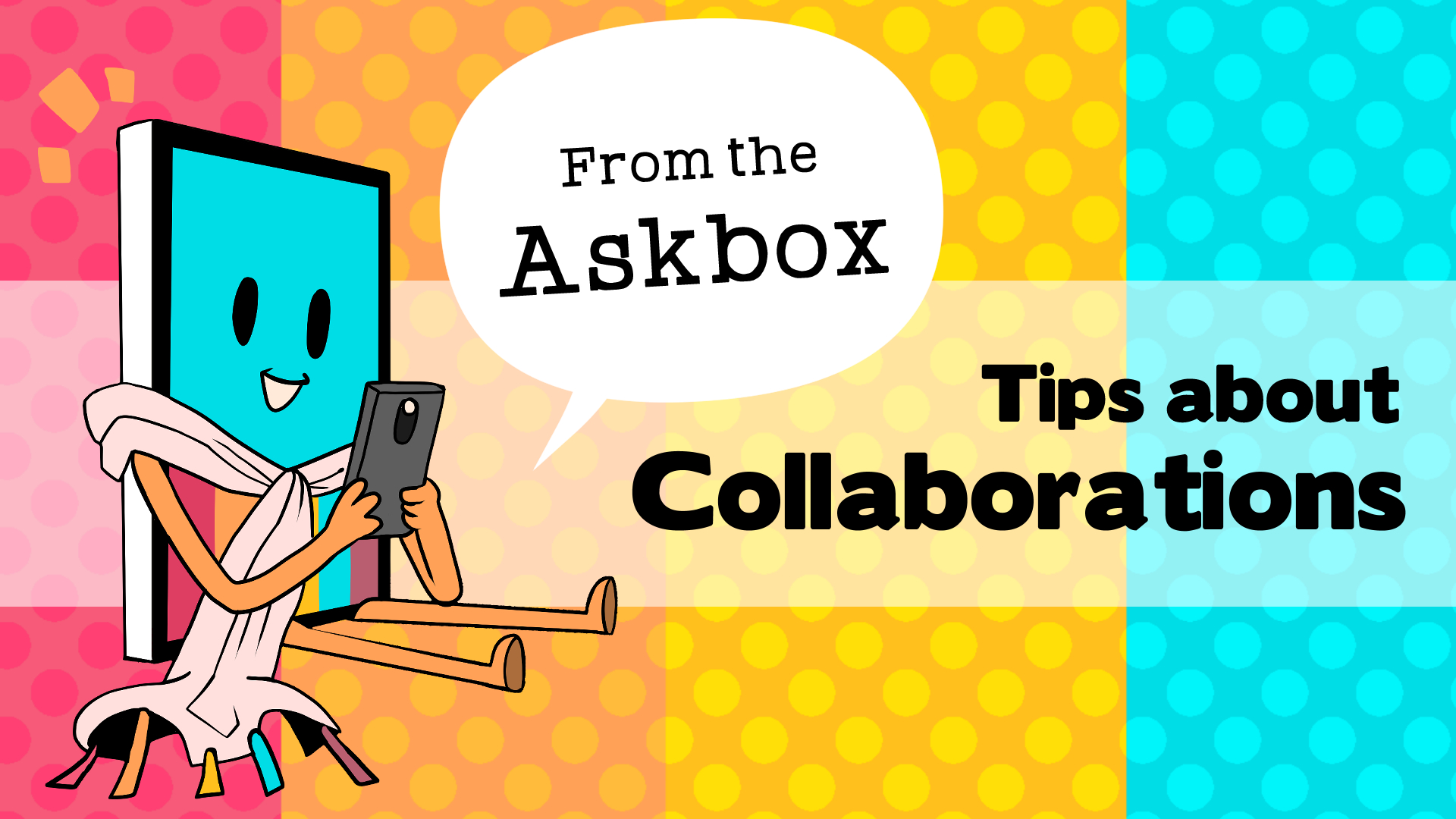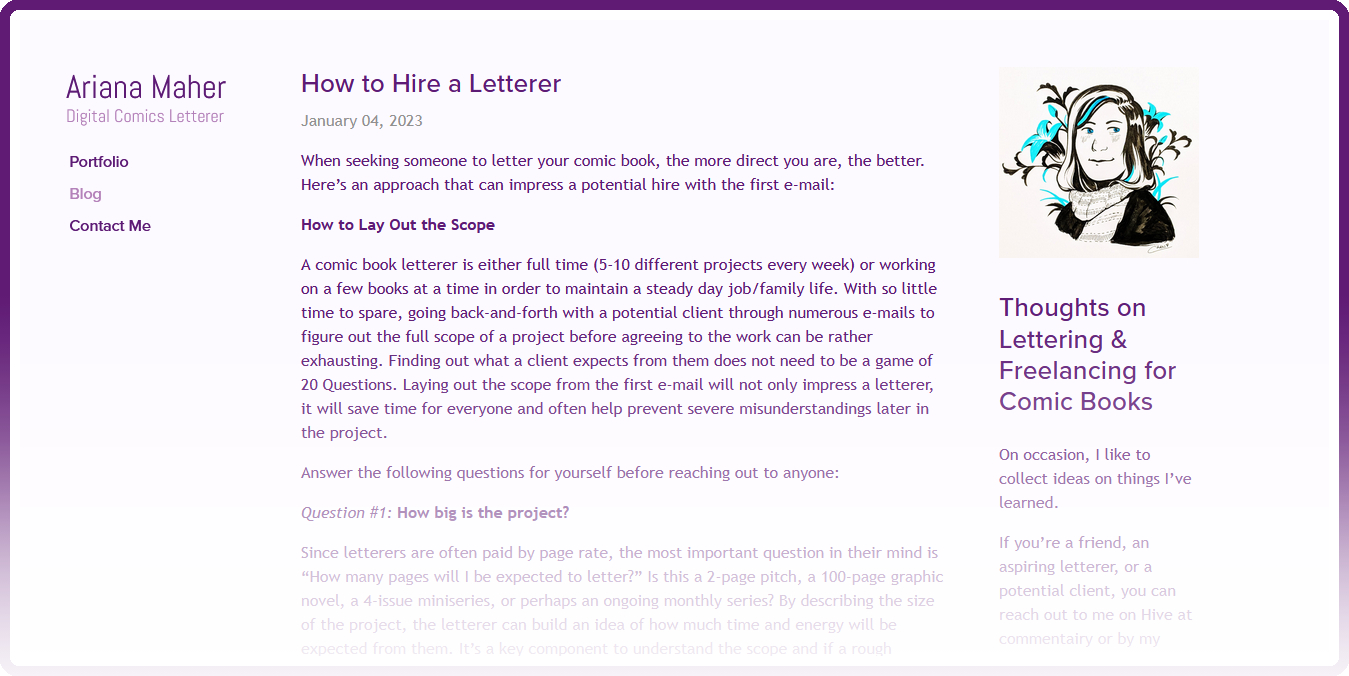From the Askbox: Tips about Collaborations

Q: Do you have any material on artist/writer collaborations - either on the collaboration process, or on how to find a collaborator to begin with?
A: This is a great question, and not always one with a straight-forward answer! While many webcomic projects are solo projects for long-term logistics reasons, some webcomics follow a split of roles between writers and artists (or maybe further split for inkers/flatters/colorists/letterers).
Collaborative teams like this can form in many ways, both formally or informally:
- Comic creators may find more members for their team to hire from boards like Reedsy, creative communities like Cartoonist Coop, or hashtags events like PortfolioDay on social media
- Writing and comic Discord servers can be good gathering places to make friends, learn about other peoples' projects, and get recommendations when someone has availability and interest for a collab. (Note that most creators you meet in these place will have their own projects, though, so don't go in expecting folks to immediately invest time in your work! Be respectful of their time and show interest/help out with their work too!)
- RP or fan groups can be hotbeds for learning the storytelling styles of other people, and that may take comic form somewhere down the road!
- Events with a deadline like anthology projects, NaNoWriMo, or Itch.io Game Jams, which often host forum and community spaces where creators can connect and collaborate for a short time (and be done if it doesn't work out)
- Friends, spouses, and siblings often team up when they're into the same things
Some things that factor into whether or not potential collaborators will want to work with you on your comic project:
- The scope of the project. Comic projects can take years, and short, deadline-driven projects can be easier to commit to than long-term ones.
- Your experience. If you haven't ever finished a comic, collaborators may be cautious to work with you if they can't see concrete proof of what you're bringing to the table, or if they suspect they're going to be doing most of the work. For writers, be sure to have your ideas fairly fleshed out, and your plans as clear as possible. For artists, keep samples and portfolio pieces handy of comic work, not just illustrations. Show you know what your part entails and that you've done it before!
- How compatible you are. Many great collaborations come from folks who know each other, enjoy each others' ideas, and work in a compatible way.
- How much of a role they have in the creative process. Are you just looking for someone to draw your ideas? Or give you ideas to draw? Or are you interested in building something together?
- Money! (though this isn't always a guarantee that the creators you talk to will have time, even if offered financial compensation)
Our best recommendation if you want more collaboration opportunities to come into your life is to see who's vibing with what you're doing in your circles, and see if there are small ways you can collaborate to test the compatibility of your work styles and get experience communicating with each other. Keep expectations clear, be ready to offer your labor to help others, and be flexible with adapting to others, adjusting your plans, or possibly contributing to projects that don't take off.
We also highly recommend this blog post of questions to ask when reaching out to hire someone. While this advice is written specifically about letterers, a lot of it applies to any member of a comic creator team!

For more of our thoughts about the roles of Writing and Art in webcomics, check out our Jam Session podcast episode about Artists vs. Writers, and to ask us your own questions, visit our askbox!
